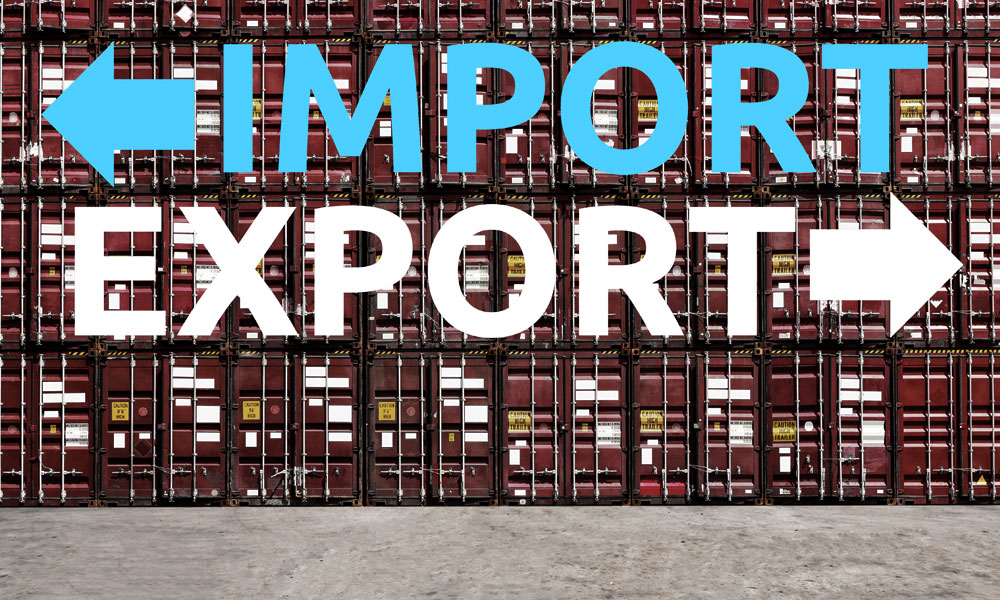News January 30, 2018
Import Tariff Bill Could Benefit Promo Industry
The U.S. Senate is considering a bill that could send ripples through the promotional products industry by temporarily reducing or suspending duties on approximately 1,700 imported raw materials and finished products, including types of apparel, drinkware and drawstring backpacks.
Passed earlier this month in 402-0 vote the U.S. House of Representatives, the Miscellaneous Tariff Bill Act now resides in Senate’s Committee on Finance where it awaits further action, according to government documents.
The bill would nix or scale back duties on imported products and materials that are either not produced in the United States or produced at insufficient levels, officials say. A rundown of all the items that would eligible for tax relief is available here. Items include various men’s and women’s footwear, woven bamboo products, yarns, dyed pique fabric, nylon, knit pullovers and cardigans, types of headwear, yoga mats, vacuum steel-lined coffee servers, nonwoven polypropylene bags, certain neoprene smartphone cases, fishing reels, leather gloves, backpacks, elastic water-repellent polyester fabric, and much more.

Should the bill be approved and signed into law, it could eliminate more than $1.1 billion in import tariffs over the ensuing three years, according to estimates from the U.S. Chamber of Commerce and the National Association of Manufacturers (NAM). In addition, the act could help bolster U.S. manufacturing output by $3.1 billion.
When it comes to the ad specialty space, industry companies importing materials and products named in the bill could experience a bottom line benefit by paying less or no duty on items that previously required capital outlay. Still, it remains uncertain whether easing the tariff grip will result in promo suppliers lowering prices on a broad swath of products. A complex swirl of inputs – from shipping costs, to currency exchange rates, to labor costs -- go into determining product price, and suppliers have been dealing with escalating costs for years in overseas manufacturing hotbeds like China. Such factors, along with the fact that the tariff relief is slated to be just for a couple years, have some in the industry skeptical that widespread product price-drops would occur even if the bill went into effect.
“The concern is that the benefits will be temporary and, as such, companies could be reluctant to pass the savings on,” said Darron Losse, vice president of key accounts at HandStands (asi/59525). “The more sustainable long-term option would be to create a permanent tariff reduction. This would have lasting benefits for companies, employees and customers.”
Nonetheless, promo pros certainly see upsides to even temporary relief from tariffs. Positives, they say, could include everything from limited price reductions on select items to end-clients that import effected materials and products having more cash to spend on marketing, which could lead to more opportunities for distributors. “There would be an overall benefit to a temporary tariff relief bill within the promo industry,” said Losse. “This relief would allow for an overall increase in activity within the various sectors.”
Paul Bellantone, president and CEO of Promotional Products Association International, told Counselor that the tariff relief proposed could give American companies the opportunity to be more competitive, “resulting in increased exports of American products and allowing U.S. companies to hire more American workers. By reducing or eliminating a variety of import duties on over 1,700 products, our interpretation of the Miscellaneous Tariff Bill Act is that it delivers some relief to the apparel industry, which is an industry that comprises 6% of U.S. imports and has paid over 50% of duties collected by the U.S. government in recent years.”
Beyond promo, NAM and other top industry trade organizations like the American Apparel & Footwear Association (AAFA) have urged the Senate to approve the bill quickly and send it to the president’s desk for signing.
“While it may not make headlines, this is a top story and a big deal for manufacturers," Jay Timmons, president and CEO of NAM, told The Hill. "Manufacturers and other businesses face what amounts to a nearly $1 million-a-day tax every additional day this issue goes unresolved.”
Rick Helfenbein, president and CEO of AAFA, believes making the bill law would be a boon to American businesses and consumers, just-style reported. “This bill will provide real benefits for U.S. businesses and result in lower prices for U.S. families, opportunities to hire more U.S. workers, and the opportunity reinvest in product innovation.”
